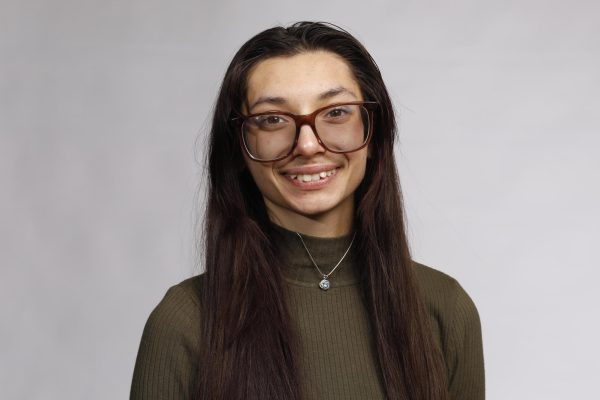Eid Mubarak to all the Muslims around the world.
Ramadan is the holy month in the Islamic calendar in which Muslims practice fasting, prayer, communal gathering and spiritual development. Eid al-Fitr is the holiday celebrating the end of Ramadan.
During Ramadan from sunrise to sunset, observers abstain from food and water (yes, even water) and model pious behavior to the best of their ability.
When dawn broke for prayer, I was reminded of the encouragement I was given by my friends.
They were quick to give me tips on how to best get through the fast, lead me through the motions of prayer, loan me copies of scripture and reading materials and share meals when it came time to break our fast.
Little did I know that a fresh dish of maqluba could get any agnostic to start having second thoughts.
This was my first time participating in Ramadan and observing Islamic religious practices. The Muslim student association was more than welcoming to me seeking interfaith understanding in Islam.
The respect I have gained for those who regularly practice fasting is unspeakable. My first couple days started off strong, like a sprint, but I quickly realized that I was in for a marathon. I am reluctant to admit how often I was tempted to quit, break my fast and cease my commitment to endure.
Fasting challenged me to reconcile my daily habits of unfettered consumption, materialism and instant gratification. I learned to appreciate the food I have after fasting for 14-15 hours only to be satisfied in 10 minutes.
More so, fasting compelled me to focus on something greater than myself. I learned that Ramadan is more than just giving up food and drink. It is also a time to take in. Otherwise, you are just going hungry and thirsty.
Surprisingly, fasting was the easy part. The real challenge was cultivating spiritual discipline, devoting time to study and empathizing with those suffering and oppressed.
My first Eid al-Fitr was a time to reflect on what I just endured after a month of fasting, extend gratitude toward myself and others and think about those less fortunate, like those in the Gaza Strip.
Considering the ongoing violence against Palestinians in the Gaza Strip, this was an especially solemn Eid.
You do not need to be a Palestinian or Muslim to care about what’s happening Gaza; you only need to be human.
Despite the Muslim community in the U.S. and their allies representing the vanguard in the free Palestine Movement, it is important to emphasize that Israel-Palestine is not a war over religion but one for land.
Yet for many, this struggle is inseparable from its religious dimensions.
For many supporters of a free Palestine, participating in Ramadan has been one act to honor that history of coexistence and express solidarity; others have even taken this opportunity to convert to Islam.
As the sun set on the last day of Ramadan, I reflected on how every fast was a reminder of the strength of Palestinian resistance. Every prayer only made my commitment to the struggle for freedom and liberation more steadfast.
And regardless of faith, more and more breathed life into the words: “Inshallah, Palestine will be free.”
Jason Farias can be reached at 581-2812 or at jsfarias@eiu.edu.


















![[Thumbnail Edition] Senior Foward Macy McGlone, getsw the ball and gets the point during the first half of the game aginst Western Illinois University,, Eastern Illinois University Lost to Western Illinois University Thursday March 6 20205, 78-75 EIU lost making it the end of their season](https://www.dailyeasternnews.com/wp-content/uploads/2025/03/WBB_OVC_03_O-1-e1743361637111-1200x614.jpg)





















































